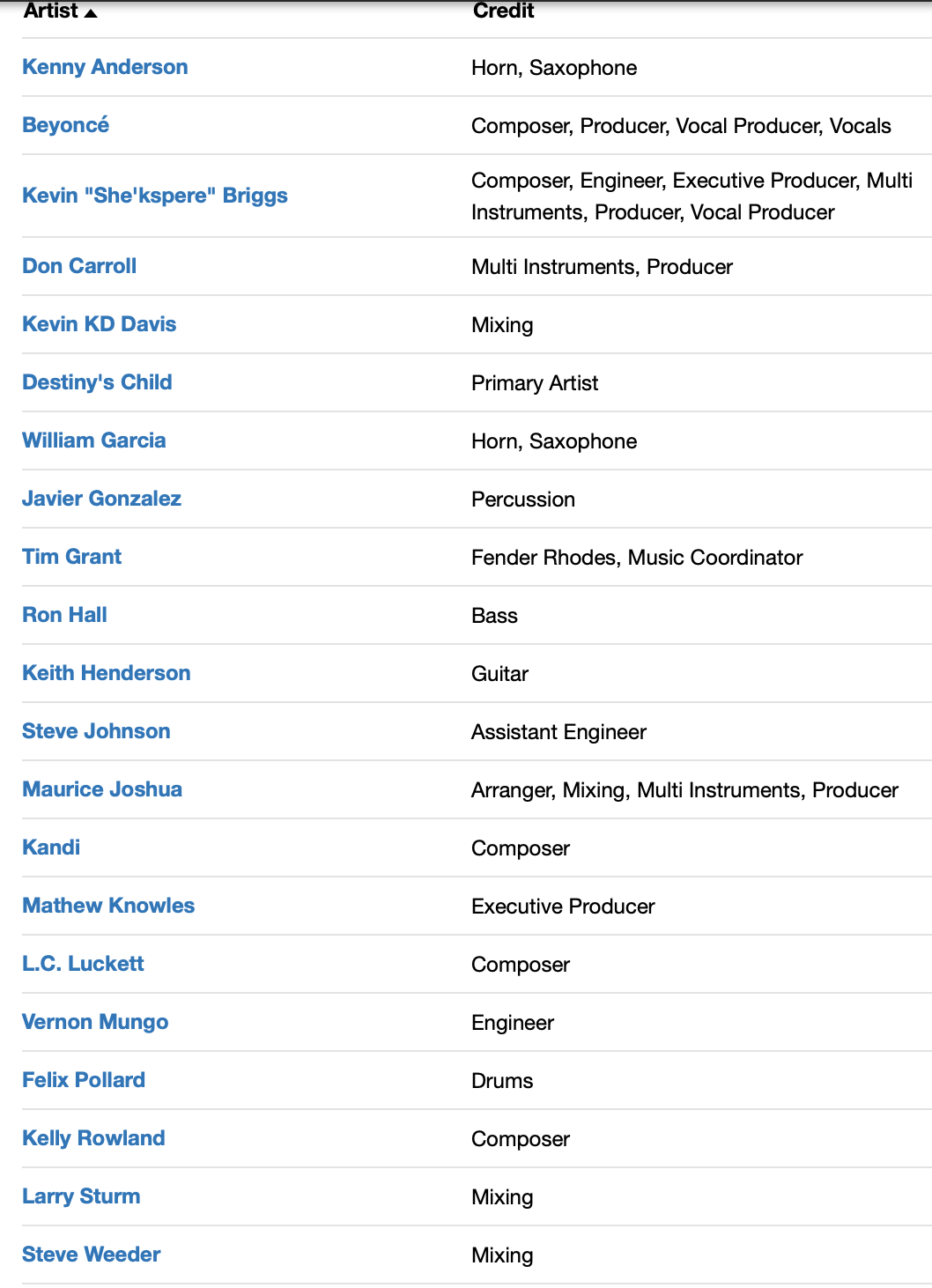Destiny’s Child Pays Homage to Blues Singers
 “Bills, Bills, Bills” uses horns and saxophones like the historical black women in jazz, blues, and soul.
“Bills, Bills, Bills” uses horns and saxophones like the historical black women in jazz, blues, and soul.
“Blues Singing Women” a chapter out of The New Encyclopedia of Southern Culture: Volume 12: Music highlights how W.E.B DuBois expressed how sorrow songs united black people. They, “walked in the darkness sang songs in the olden days — sorrow songs–for they were weary at heart. They came out the south unknown to me, and yet I knew them as me and mine”. Sorrow songs show the shared oppressions of African American people, but women blues singer sang about love, infidelity, and passion. The blues has a historic precedent of uniting the sorrows of women similarly to Destiny Child’s “Bills, Bills, Bills”. They unit the independent women who are not dating the men that are not on their level or treating them correctly.
The saxophone was used for ragtime music, a style of jazz from 1895 to 1919. Chapter “African American Ambassadors Abroad and at Home” out of Music in America’s Cold War Diplomacy comments onJazz, “performances and their remarks about political matters, framed by dramatic civil rights controversies, drew enormous attention abroad and significant comment at home.”
Their lyricism highlights the unique experience of black women having to be independent and not being able to depend on a man for resources. This storytelling pays homage to older groups like Diana Ross and The Supremes.
Beyoncé and Diana Ross share many similarities with them both starting in girl’s groups, being managed by strong father figures, both having to distance themselves to become independent, and their importance to black communities.
 “Bills, Bills, Bills” uses horns and saxophones like the historical black women in jazz, blues, and soul.
“Bills, Bills, Bills” uses horns and saxophones like the historical black women in jazz, blues, and soul.